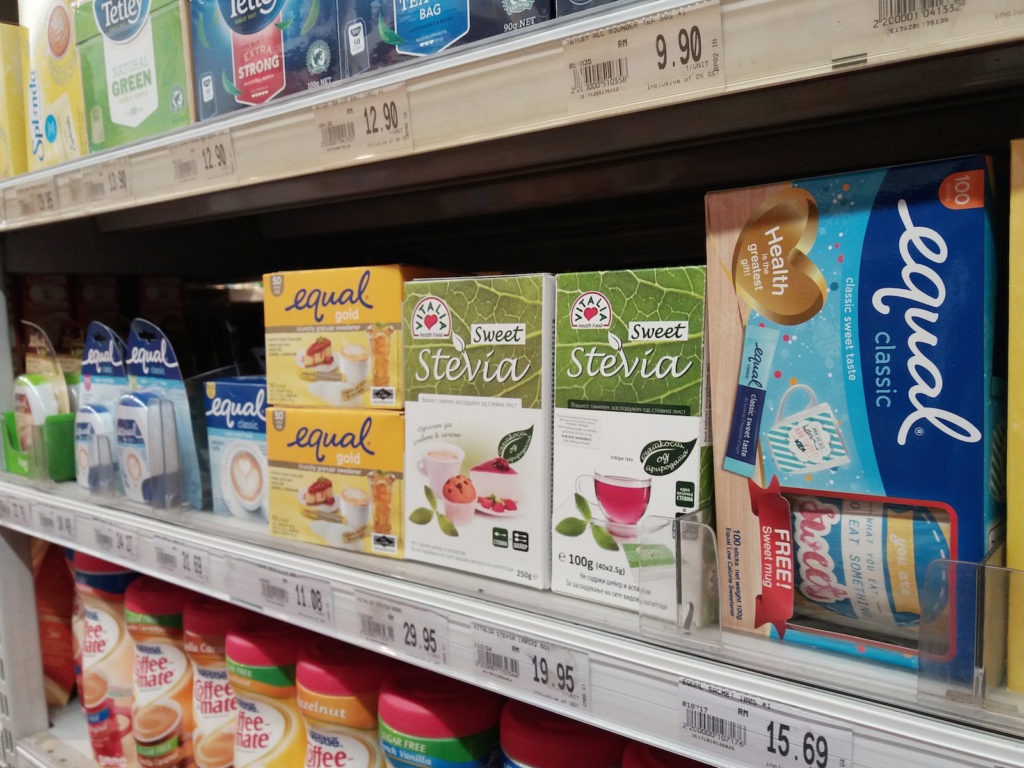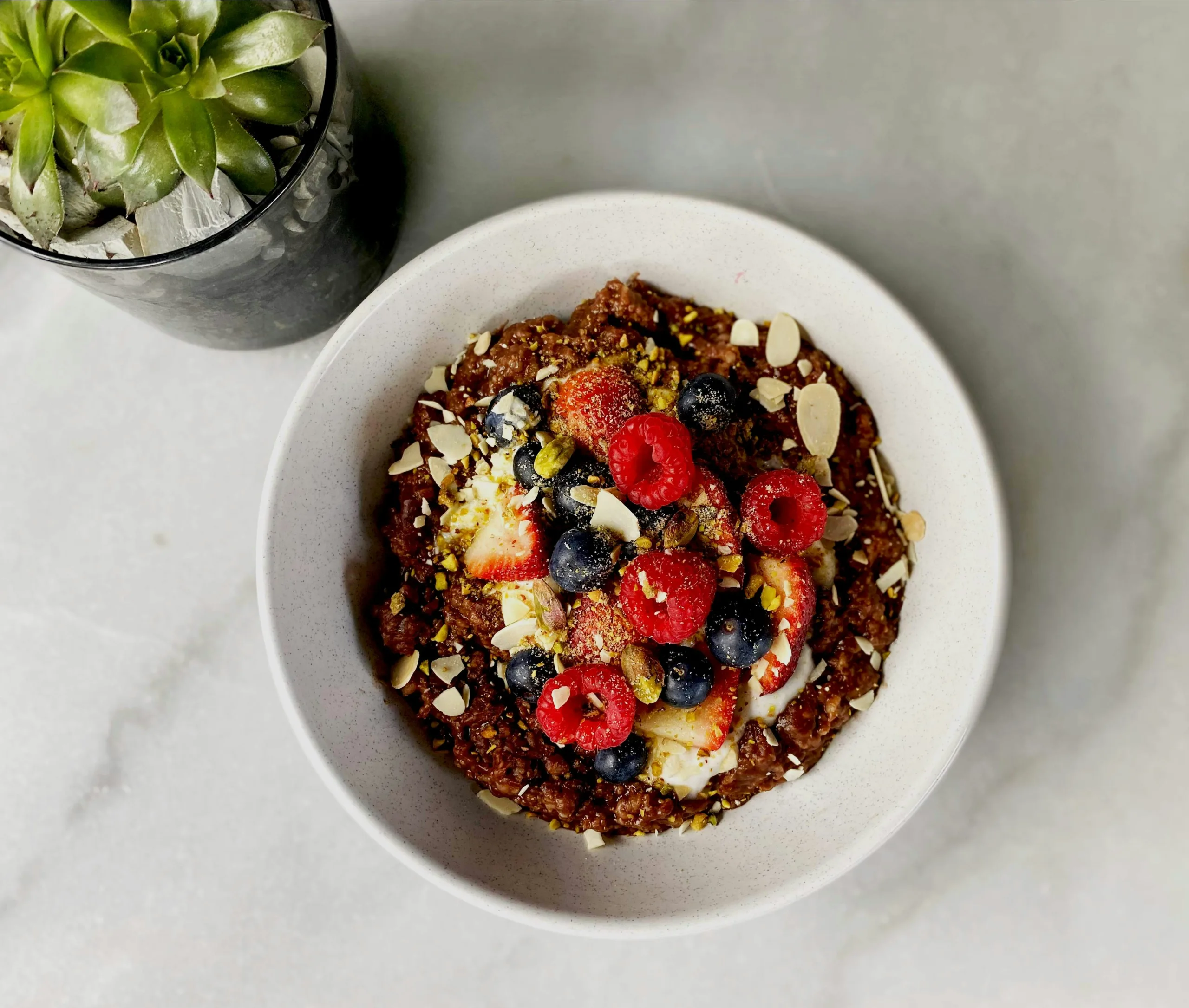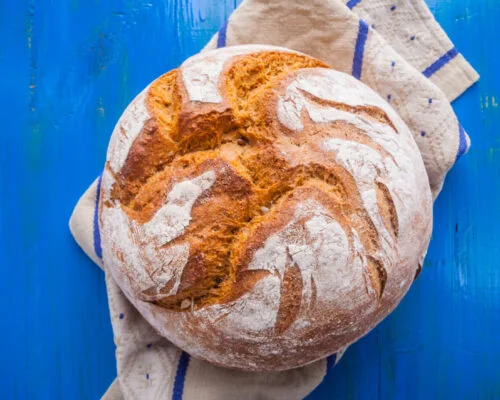Ask Keri: I’m trying to avoid sugar but have heard artificial sweeteners can be even worse. Should I avoid those, too?
Keri Says: I hate to be the bearer of bad news, but like white sugar, I recommend avoiding artificial sweeteners as much as possible. In fact, I actually dislike them even more than their natural counterparts. My main concerns are related to how they may affect gut health and insulin levels in the body.
Why Choose Artificial?
Why do people reach for artificial sweeteners, anyway?
The main draw of packets like Splenda and Sweet‘N Low is their ability to sweeten things like your morning coffee (or diet soda) without adding calories. That sounds dreamy, but how exactly dos they work?
Artificial sweeteners taste sweet because the receptors on your tongue recognize them the same way they recognize natural sugars. But the chemical structure is different from sugar so the body doesn’t break them down into calories.
For this reason, artificial sweeteners are popular among people with weight loss goals or who are looking to manage diabetes.
Artificial Sweeteners Bad For You?
Because artificial sugars are exceedingly sweet (even the natural options, like stevia), using them regularly can impact your sense of taste and make it difficult to detect pure sweetness from naturally sweetfoods like fruit. In other words, rather than satisfying your hankering for sweetness, they can add to it.
RELATED: This Is What Too Much Sugar Does to Your Body
Plus, your body reacts to that sweetness on your tongue by triggering hormones that will help your body process the coming calories. When those calories don’t show up, things can get thrown out of whack. You may crave more food because your body is telling you it’s expecting more food.
These concerns, however, are not even the main issues. Research has linked artificial sweeteners to an increased risk of type 2 diabetes, and a recent study has even tied artificial sugar consumption to an increased risk of cardiovascular disease.
Artificial sweeteners are just that: artificial. Most of these “fake” sweeteners have a large potential for negative health outcomes and there is plenty of research supporting the position to stay away.

Artificial Sweeteners and Insulin
Refresher: When you eat carbs, your body breaks them down into sugars which are absorbed into the bloodstream. This triggers the release of insulin—a hormone that helps blood sugar enter the cells—which the body uses for energy (or stores it as fat, if there’s too much!).
Insulin resistance is a condition in which cells don’t respond properly to insulin and stop being able to take in sugar and use it for energy. In response, the body keeps pumping out more and more insulin. It’s a major factor that leads to type two diabetes.
RELATED: Should You Avoid These Sneaky Sugar Substitutes?
Your body may also release small amounts of insulin through a process called “cephalic phase insulin release.” In this scenario, insulin is released before sugar enters your bloodstream when you see, smell, or taste food.
This is where theories about artificial sweeteners begin: It would make sense that when you smell or taste the sweetness, it could trigger the release of excess insulin.
Research on whether consuming artificial sweeteners leads to a rise in insulin levels, however, is mixed. Studies on aspartame (used in Equal) and saccharin (in Sweet’N Low) show mixed results. But there is enough evidence to suggest sucralose (Splenda) does raise insulin levels.
Artificial Sweeteners and Gut Health
Another theory is that consuming artificial sweeteners regularly affects the balance of your gut bacteria, potentially making cells resistant to insulin, and leading to increased blood sugar and insulin levels.
While it’s hard to verify the exact sequence of effects, a recent review of research found that saccharin, sucralose, and stevia do change the composition of the gut microbiome. Other studies have found sweeteners are toxic to gut bacteria in mice, but more research is needed.
Still, while the research is not yet conclusive, I’m inclined to tell you to avoid anything that seems bad for that all-important microbiome of yours. Gut health, after all, is not just abou blood sugar and insulin—the balance of microbes in your gut affects your immune system, mental health, and so much more.
The Bottom Line
If you can, skip them all. When you need to reach for one, stevia or monk fruit is the least harmful option and there is evidence they may even have some benefits. Otherwise, opt for sweeteners like maple syrup, honey, and coconut sugar that are natural whole foods and contain beneficial nutrients—in very small amounts.
(Image: Shutterstock)





























